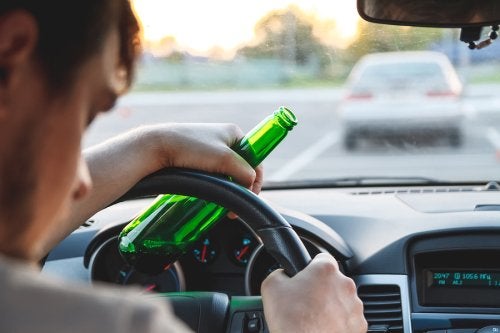-
What Is Implied Consent?
If you’ve been charged with drunk driving, you will need to have an attorney in Owings Mills explain the legal nuances of your case. Like other states, Maryland has established a rule of implied consent. This means that, if you are driving on the state’s roadways, you are presumed to have already consented to submit to a blood, breath, or urine test. The implied consent law applies to you if you’re pulled over by a police officer on suspicion of impaired driving and the officer asks you to submit to blood alcohol content (BAC) testing.
Since every driver has already given his or her consent to submit to testing, drivers who refuse to do so face legal penalties. If you’ve refused to take the test, your lawyer will inform you that you face a 120-day suspension of your driver’s license. If you refuse the test on a second occasion, the suspension will last for one year. Some people reason that it’s worth it to risk license suspension if it means they won’t be convicted of DUI. But in fact, refusal to submit to a test almost certainly won’t help your case, and it will only add to the penalties you could face.

-
What Is the Legal Definition of Negligence?
If you consult a personal injury lawyer in Owings Mills after you’ve been hurt in an accident, you may hear the term “negligence” frequently. As your accident lawyer can advise you, the legal concept of negligence can play an integral role in your claim. Your accident lawyer will need to prove that the other party acted in a negligent manner and that these negligent actions directly led to your injuries or other damages.
When you watch this video, you’ll hear a professional discuss the legal definition of negligence. She explains that a person is found to be negligent if he or she has acted in a manner that departs from the standard of conduct expected of a reasonable person acting in similar circumstances. For example, your accident lawyer may argue that the other driver was negligent because he or she failed to reduce the vehicle’s speed in unsafe weather.
-
What Not to Do After a Car Accident
No one expects to be in a car accident. If you experience one, though, it is important to know how to respond. What you do following a vehicle collision can determine many factors, including the injury compensation you might receive. A lawyer in Owings Mills can help you reconcile the aftermath of a car accident, but it is up to you to react responsibly in the moments ensuing a collision.
 Let Emotions Interfere
Let Emotions Interfere
Many people consider car accidents upsetting events. Not only can they cause extensive damage to one of your most valuable possessions, but they can also lead to serious injuries to you and your loved ones. However, when a vehicle collision occurs, it is critical that you control your emotions. Whether your natural response is fear or anger, these feelings can interfere with your ability to record information about your accident. Confrontations with the other driver can likewise prove dangerous and disadvantageous should you and your attorney decide to pursue a personal injury claim.Admit to Fault
In everyday situations, people often apologize for minor indiscretions such as taking the last bagel at work or forgetting to take out the trash before leaving home. This instinct to apologize can have serious ramifications if you admit to fault at the scene of a car accident. You are not obligated to discuss any aspect of the collision with the other driver. You need only collect his contact and insurance information. Once the local authorities arrive, you can then provide them a description of the events that took place.Drive Away from the Collision
A lawyer may also caution you to stay at the scene of the accident until the authorities give you permission to leave or an emergency care crew determines that you require medical attention. Driving away from a vehicle collision can severely affect your ability to collect personal injury compensation. If you fail to stay long enough for the authorities to arrive, you may even be accused of a hit and run offense. To protect your interests, remain at the scene of the accident until you have taken down all necessary information and have given a complete statement to the authorities.
RECENT POSTS
categories
- Uncategorized
- Divorce
- Infographic
- reviews
- Accidents
- Divorce Law
- Maryland Divorce Law
- Child Custody
- Alimony
- Indefinite Alimony
- Divorce Lawyer
- Annulment
- Kent L. Greenberg
- Matthew J. Rudo
- Child Support
- Credit Card Debt
- Remarriage
- Divorce Papers
- Child support law
- Alimony laws
- divorce process
- Alimony Payments
- Absolute Divorce
- Contested Divorce
- divorce attorney
- family attorney
- family law
- No-Fault Divorce
- Family Care Plan
- financial statement
- Online Divorce
- lawyer
- Uncontested Divorce
- Law Office of Kent L. Greenberg
- P.A.
- Joint Custody
- Senior Divorce
- DIY Divorce
- Car Accident Attorney
- Greenberg
- Personal Injury Law
- Domestic violence
- Вечірні сукні
